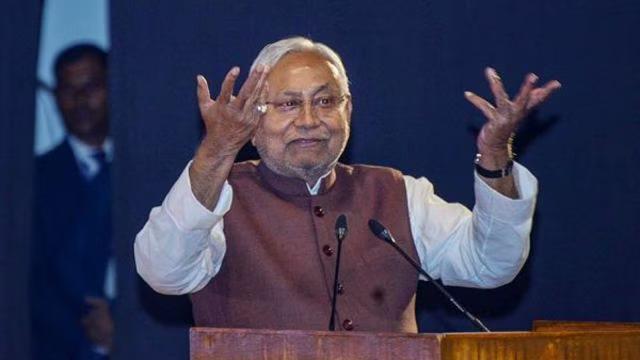
It will help in development: Bihar CM Nitish Kumar on caste census
The recent decision by the Central Government to include the caste census in the upcoming national census has been welcomed by many, including Bihar Chief Minister Nitish Kumar. In a recent statement, Kumar expressed his happiness over the decision, emphasizing that it will help in making plans for the upliftment and development of people from different social classes.
The caste census is a significant move that will help in understanding the social and economic dynamics of the country. It will provide valuable insights into the demographics of different castes and communities, which will be crucial in making informed decisions about development and welfare policies.
Kumar’s statement comes at a time when the country is grappling with issues of social and economic inequality. The caste system has been a long-standing issue in India, with different castes and communities often facing different levels of access to resources, education, and employment opportunities.
Conducting a caste census will help in identifying the most vulnerable sections of society, which will enable policymakers to design targeted interventions to address their specific needs. For instance, the census will reveal the number of people from backward and marginalized communities, which will help in allocating resources and funds to areas that need them the most.
Moreover, the caste census will also provide a more accurate picture of the country’s population, which will help in making informed decisions about infrastructure development, healthcare, and education. It will also help in identifying areas where there are gaps in service delivery and resource allocation.
Kumar’s emphasis on the caste census being a tool for development and upliftment is particularly noteworthy. He has been a strong advocate for the welfare of backward and marginalized communities, and his government has implemented several programs aimed at improving their socio-economic conditions.
The Bihar government’s initiatives, such as the Mukhyamantri Kisan Arya Yojana, which provides financial assistance to farmers from backward castes, and the Mukhyamantri Dalit Aarakshan Vivad Nivaran Yojana, which provides financial assistance to Dalits to settle disputes, are examples of the government’s commitment to uplifting marginalized communities.
The caste census will also help in identifying areas where there is a need for affirmative action policies. For instance, the census will reveal the number of people from Scheduled Castes (SCs) and Scheduled Tribes (STs), which will enable policymakers to design policies that address their specific needs.
In addition, the caste census will also provide a platform for marginalized communities to voice their concerns and demands. It will enable them to participate in the decision-making process and have a greater say in shaping policies that affect their lives.
The decision to include the caste census in the national census has been welcomed by many civil society organizations and advocacy groups that work with marginalized communities. They have long been demanding a caste census, arguing that it is essential for addressing social and economic inequality.
While there may be some concerns about the logistics of conducting a caste census, the benefits far outweigh the challenges. The caste census will provide valuable insights into the social and economic dynamics of the country, which will enable policymakers to design more effective policies that address the needs of all sections of society.
In conclusion, the decision to include the caste census in the national census is a significant step forward in addressing social and economic inequality in India. It will provide valuable insights into the demographics of different castes and communities, which will enable policymakers to design more effective policies that address their specific needs. As Bihar Chief Minister Nitish Kumar has emphasized, the caste census will help in making plans for the upliftment and development of people from different social classes, and it is a step towards a more equitable and just society.
Source: https://x.com/NitishKumar/status/1917549792462529008






